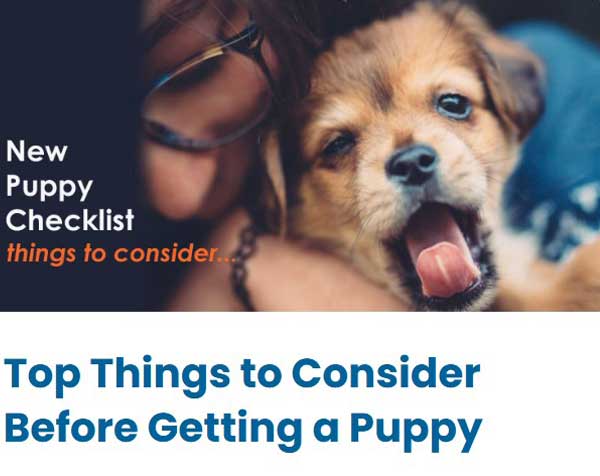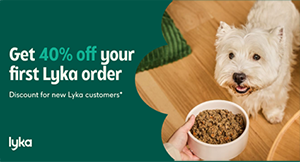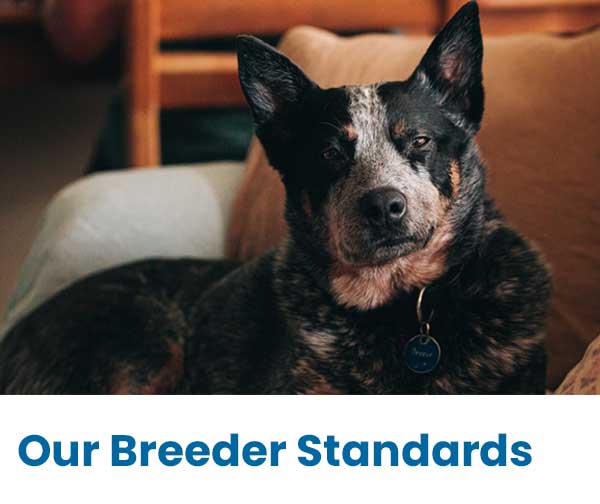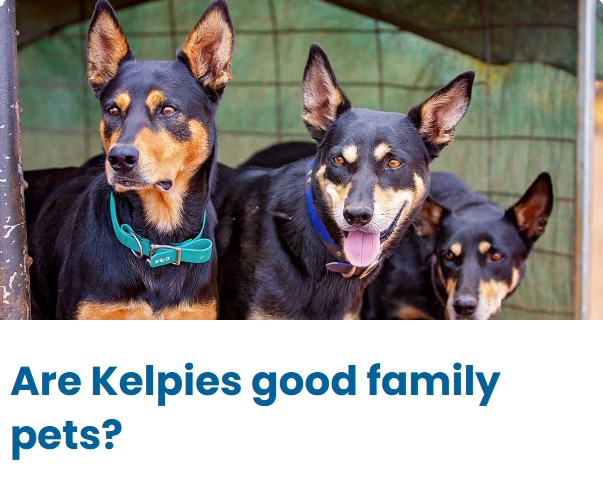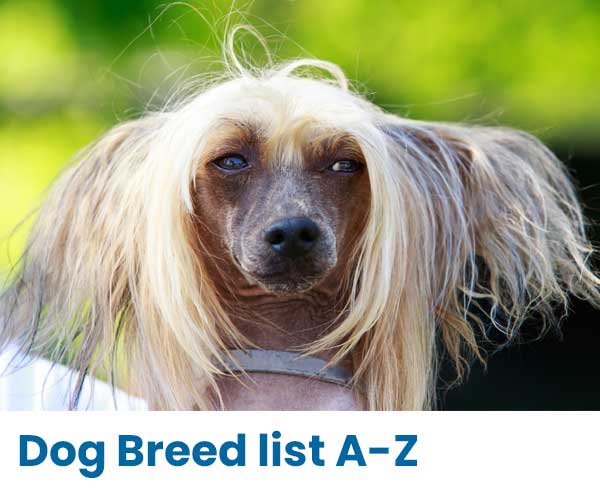Rhodesian Ridgeback breed guide
Rhodesian Ridgebacks are loyal, intelligent, and can be somewhat aloof to strangers. This is not to be confused with aggression; a Ridgeback of proper temperament will be more inclined to ignore, rather than challenge, a stranger. Ridgebacks are strong-willed, intelligent, and many seem to have a penchant for mischief, though as family pets they are very loving and loyal. Despite their athletic, sometimes imposing, exterior, the Ridgeback has a sensitive side, is very intuitive and does not respond well to inconsistent, panicky or uncertain approaches to discipline. A ridgeback will often attach itself to one member of the family in particular but generally extend their special kinship connection to the whole family. No dog likes to be left alone for long periods and ridgebacks are no exception. They are most comfortable hanging out in the close company of their beloved owner. Ridgebacks are generally not frequent barkers and will only bark when there is actually something to bark about – such as a visitor or intruder. If your Ridgeback is making a noise, you know there is reason to investigate!
The Rhodesian Ridgeback is easy to spot - he's the one with the tiny mohawk running down his spine. Ridgebacks have expressive eyes that reflect the spirit of this large, intelligent dog who loves to run and play. He's not a barker, but a Ridgeback will always protect his family.
Rhodesian Ridgeback temperament
Rhodesian Ridgebacks are loyal, intelligent, and can be somewhat aloof to strangers. This is not to be confused with aggression; a Ridgeback of proper temperament will be more inclined to ignore, rather than challenge, a stranger. Ridgebacks are strong-willed, intelligent, and many seem to have a penchant for mischief, though as family pets they are very loving and loyal. Despite their athletic, sometimes imposing, exterior, the Ridgeback has a sensitive side, is very intuitive and does not respond well to inconsistent, panicky or uncertain approaches to discipline. A ridgeback will often attach itself to one member of the family in particular but generally extend their special kinship connection to the whole family. No dog likes to be left alone for long periods and ridgebacks are no exception. They are most comfortable hanging out in the close company of their beloved owner. Ridgebacks are generally not frequent barkers and will only bark when there is actually something to bark about - such as a visitor or intruder. If your Ridgeback is making a noise, you know there is reason to investigate!
The ideal owner for a Rhodesian Ridgeback
Ridgebacks can be both family dogs or loyal one-person companions. If raised around children from puppyhood they will be loving family pets. Likewise, with cats and other family pets.
Training and Socialisation
Ridgebacks are protective of their owners and families. If trained well, they can be excellent guard dogs. Like any dog that is not socialised properly, they can become aggressive, which given their size and strength could be frightening and lead to injuries. Extra effort should be taken in the first 3-4 months of a puppy's life to expose him or her to the widest possible variety of humans, dogs, cats and environments, and to ensure they develop a trusting respect (not fear) for their owner's authority as pack leader.
Francis R. Barnes, who wrote the first standard in 1922, acknowledged that "rough treatment ... should never be administered to these dogs, especially when they are young. They go to pieces with handling of that kind."
How much space and exercise do Rhodesian Ridgebacks need?
Despite being a large dog, Ridgebacks are usually happy to curl up on their bed in a corner and are happy living in a small space. Of course, they still need daily exercise outside but are amazingly unobtrusive inside the house. If allowed to lie on a bed or couch you will often see them snooze there for many hours.
For socialisation, stimulation and fitness all dogs will need exercising at least once a day for a minimum of 30 minutes. The Ridgeback is capable of great speed and endurance, and Ridgebacks have competed successfully in endurance and agility trials, as well as tracking, obedience and lure coursing. Care should be taken to build up their fitness, however, before taking on more extreme pursuits.
It must be remembered that Ridgebacks are hounds: they have been selectively bred for characteristics that suit them to hunting. This means they may have a natural 'prey drive' or urge to chase and catch rabbits and wildlife. Care needs to be taken to ensure that this natural drive is not indulged, with responsible ownership requiring on-lead exercise in most environments until the owner is confident they have full control.
Rhodesian Ridgebacks and grooming
Most Ridgebacks are sleek and clean looking animals, however, if they are indoor pets they will shed their short hair throughout the year. Dogs who live outside will shed more seasonally. Brushing off excess hair when outdoors will help to keep it under control in the home. On the whole, Ridgebacks don't have a strong 'doggy' smell and as a general rule require minimal bathing. The nails of Ridgebacks are usually black and very hard. They grow quickly and, unless you are walking them regularly on hard surfaces such as a foot path they require cutting every six to eight weeks.
Rhodesian Ridgeback FAQ's
Are Ridgebacks protective?
One of the purposes that Ridgebacks were bred for was guarding the homestead and they certainly come across as a formidable guard dog. When it comes to strangers, the Ridegbacks temperament is best described as 'aloof' and purebred Ridgebacks do not feature strongly in dangerous dog statistics because they have a low propensity to bite humans unless provoked. Their strong loyalty to owner/family, however, means that they will become protective if a person is threatening. In fact they can become distressed when family members argue or playfight because they don't know who to rescue.
Are Ridgebacks good family dogs?
Ridgebacks are excellent family dogs when socialised with children from an early age. While they can have a favourite owner (usually the person who feeds and walks them!) they extend their circle of love to all family members. As a large strong willed breed, they require clear rules to be consistently enforced in a family environment - a three month puppy who jumps on you and licks your face may be cute but try the same thing at 45 kilos and people can get injured.
Are Rhodesian Ridgebacks healthy?
Ridgebacks tend to be a very hardy breed although there are few diseases they may be affected by, see more on the full Rhodesian Ridgebacks profile.
Do Ridgebacks bark a lot?
No. They usually only bark when they have something to say. Playing with their doggy friends for example, or alerting you to a visitor. Daily walks and regular loving attention helps to keep your ridgeback settled throughout the day.
Are Ridgebacks dangerous?
Not as a rule as they tend to be very stable and unflappable (with the odd exception!). As with any dog, socialisation in the first few months of life is absolutely critical. Aggression in dogs is usually related to fear or uncertainty so always be clear and firm and set the boundaries you expect them to observe.
How long do Ridgebacks live?
The average well cared for Ridgeback should live to be 11-12 years old.
Are Ridgebacks smart?
Very, but there is a spectrum of Ridgeback IQs!. They will look into your eyes with almost human connection, and many have achieved obedience and other qualifications but they won't usually bring your ball back more than once!
How much does a Ridgeback dog cost?
A pedigree Ridgeback from a reputable breeder with Champion bloodlines will cost upwards of $2000. You can pay more for show quality pups. Unlike the popular designer breeds, pedigree breeders have to invest over many years in showing and testing their breeding stock to ensure they uphold the breed standard and are free from genetic defects. Don't be surprised if a breeder requests to have their name kept on the registration. This is to ensure that their dogs are not used for breeding outside of an approved breeding program. Let the breeder know if you would be willing to enter your puppy in conformation shows. This can be a fun activity to do with your dog, and will help them become well socialised.
Do Ridgebacks shed a lot?
Ridgebacks have a short sleek coat that requires very minimal maintenance and shed about the same amount as most breeds. They will shed their short hair throughout the year and especially with the onset of summer. A quick daily brushing outside keeps the hairs off your carpets and floors.
Are Ridgebacks easy to train?
Yes and they can learn very rapidly if the trainer is clear and consistent, especially if you start very young - for example making them wait patiently until you give the command to eat. Ridgebacks thrive on praise and really want to please their owner so praise can be a sufficient reward when training but food will often help to get the lesson across more quickly! Consistency is vital, don't tell them to heel on your left one day and let them drag you around the rest. Focus on recalling them to you from an early age, rewarding them with a little treat, then you can call them back to you at any time in adult life. This is very important if you are exercising your dog in an off-lead area.
History of the Rhodesian Ridgeback
The Rhodesian Ridgeback is a dog breed developed in Southern Africa. Its European forebears can be traced to the early pioneers of the Cape Colony of southern Africa, who crossed their dogs with the Hottentot hunting dog, the native, semi-domesticated, ridged hunting dogs of the region.
In the earlier parts of its history, the Rhodesian Ridgeback has also been known as the African Lion Hound or African Lion Dog because of its ability to track a lion over many miles and still have the stamina and agility to keep a lion at bay while awaiting its master to make the kill. In the early days it was widely known as Van Rooyen's Dog, after Cornelius Van Rooyen who developed his own pack, experimenting with the introduction of various European hunting breeds to achieve a hound suited to hunting small game, tracking large game such as lions and guarding the homestead. Van Rooyen is recognised as making a great contribution to stabilising the desirable characteristics associated with the breed. Of course, the breed has become far more domesticated since then but the characteristics of hardiness, courage and endurance remain.
The original breed standard was drafted by F.R. Barnes, in Bulawayo, Southern Rhodesia (now Zimbabwe), in 1922. Based on that of the Dalmatian, the standard was approved by the South African Kennel Union in 1927.
References:
Australian National Kennel Council, Rhodesian Ridgeback Standard, 2000; Denise Flaim (November 2002). "The Other End of the Leash Understanding Our Complex Hounds"; Animalabs, Pawprintgenetics; Vetstreet.com
Potential health issues in Rhodesian Ridgebacks
According to the American College of Veterinary Surgeons although rare, one health issue which affects Ridgebacks more than other dogs is 'dermoid sinus'. Dermoid Sinuses form during embryonic development and are inheritable, so dogs who have this defect should not be bred.Dermoid sinuses occur along the midline of the neck and back and consist of a tube opening from the skin and in some cases, extending as far as the spinal cord. Infections within the tube invariably arise, causing serious harm and often requiring euthanasia. Puppies with dermoid sinus are generally euthanised as soon as the sinus is detected as the prognosis for these pups is so poor.
Dermoid sinus is a defect that breeders and breed enthusiasts seek to eliminate from breeding stock. These sinuses can be felt from an early age by experienced breeders and all reputable breeders will aim to detect any dermoid sinuses before puppies are transferred to their new homes. The vet will check again for dermoid sinus at your first visit (along with other defects like heart murmurs). If the sinus is not discovered until after a puppy has thoroughly bonded with its new family, surgery to correct the defect may be possible. Many breeders offer a guarantee against dermoid sinus and most will automatically refund the cost of the puppy should this genetic fault occur.
Another health concern common to most large breeds is hip dysplasia. Similar to the condition in humans, the ball and socket joint of the hip is loose and the head of the femur may move excessively in the socket to the point of complete dislocation. Long term effects include, osteoarthritis, problems with gait and chronic pain.
To reduce this problem, reputable breeders routinely X-ray their breeding stock to measure and will only breed from those with 'hip scores' within the desired range. A similar approach is also taken to the scoring of elbows as heritable diseases relating to the shoulder joint can also occur. As hip dysplasia can be inherited it is a good idea to ask to see the hip scores of both parents of the dog you are looking at purchasing.
Modern breeders are increasingly screening their breeding stock for a range of other heritable conditions as tests become more available and accurate. This includes genetic testing for Juvenile Myoclonic Epilepsy (a rare form of epilepsy that is specific to the Rhodesian Ridgeback and Degenerative Myelopathy (a neuromuscular condition which can develop in older dogs. It is not yet routine to screen all puppies for these genetic problems but is adopted by breeders wishing to avoid the risk of these conditions in subsequent generations.
References: Animalabs, Pawprintgenetics
Four fun facts about Ridgebacks:
1. They love to sit on your lap. Seemingly unaware of their size, Ridgebacks will frequently come and plop on your lap or back themselves onto your lap when you're sitting on the couch, leaving their front paws on the ground in front. This always makes for a good photo opportunity.
2. They love to lean on people that they like, this could be an opportunity to get extra pats or maybe a way of keeping you from moving on, either way it is a sign of affection.
3. Some Ridgebacks are born without a 'ridge' and the ridge never develops. In the past, many breeders would routinely cull any puppies without a ridge but it is now common practice for these pups to be sold as pets only. Although these dogs cannot be shown in the ring, they are completely unaffected by the lack of this purely cosmetic trait and are Ridgebacks in every other sense. They still make wonderful companion pets.
4. The Ridgebacks tail is long and hard and tapered at the end. When a Ridgeback is happy or excited this tail can wag so hard that it can cause a nasty sting when it hits you. It's also not uncommon for them to suffer injuries to their tails when wagging them furiously in excitement and repeatedly hitting it against an abrasive wall such as brick or render. This tail wagging is also a danger to any glass of wine within range, so watch out when the excitement hits!
General facts about Rhodesian Ridgebacks
Life expectancy 10 - 13 years
Height: Females 61 - 66 cm, Males 63 -69 cm
Weight: Females 29 - 34 kg, Males 36 -41 kg
Litter size: usually 6 to 8 pups
Colour: Ridgebacks coat is wheaten and comes in a variety of tones and shades from light wheaten to red wheaten. Some Ridgebacks will have darker hair around the muzzle and their noses may be black or liver coloured. Some may have white markings on the chest or toes, as long as they are only small this is considered acceptable.
Many thanks to Sarah Kelly & Lisa Wardlaw-Kelly - Lionsbane Kennels for writing up this breed information for us. Also thanks to Karin Wolgast Fürst of Kadamo Kennel for stunning photos of Yaya, Mira, Bellman, Ãijä and Maximus.
If you are a small scale ANKC registered breeder and would like to be listed here, just contact us or follow a few simple steps to add your details yourself.
We welcome helpful comments and contributions to information about this breed by email

